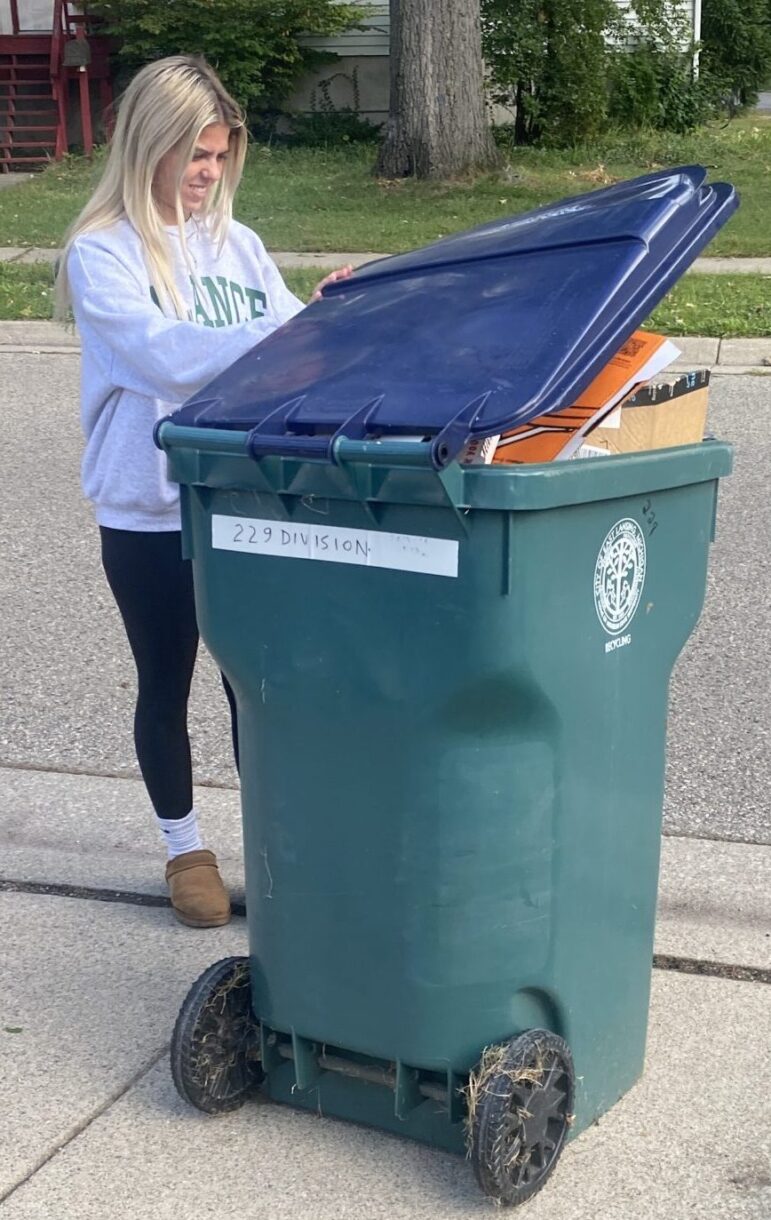
Megan Samp
MSU student Hannah Cereske takes out the recyclables.East Lansing has joined the Michigan Department of Environment, Great Lakes and Energy to improve its recycling.
This month starts a 6-month improvement collaboration. The city is working with The Recycling Partnership, which strives to improve recycling in Michigan.
The Michigan Recycling Partnership is the largest such effort in state history. Private and public partners provide cities with money to rehabilitate recycling systems.
The project emphasizes “Feet on the Street,” a tactic to improve recycling by providing users with information, education and feedback. Residents are notified when items cannot be accepted by recycling services. These can range from food to electronics, to plastic bags or wrappers. This process is done by tagging residents’ bins.
In East Lansing, cameras on trucks will capture whether unacceptable material was placed in the bins. Residents will then be notified by email. “As a whole, the recycling industry is moving toward robotic and technological tactics,” said Emily Freeman, recycling specialist at the Department of Environment, Great Lakes, and Energy.
East Lansing will be the first city in the United States to use the strategy, Freeman said. She said it is extremely staff intensive. East Lansing is receiving a $28,000 Recycling Quality Improvement grant. With funding, the technology will be implemented shortly.
East Lansing environmental specialist Cliff Walls said, “Behavior change takes time, but by utilizing this technology for a targeted approach to outreach, we expect we could see this feedback result in immediate changes as it provides recycling information to residents who need it most.” Walls said an audit was recently performed of in-depth contamination. “The results of that audit will help us better understand the true impact of the program and determine if it has resulted in significant decreases in recycling contamination.”
This project will primarily provide customized feedback to residents regarding their recycling practices and better communicate what can and cannot be recycled at the local Material Recovery Facility. By keeping contaminating material out of the recycling stream, equipment damage by things like plastic bags and film will be minimized. Cassandra Ford, community program manager for The Recycling Partnership, said “As an example, for every ton of paper recycled instead of landfilled you avoid generating one metric ton of greenhouse gasses (CO2), save 7,000 gallons of water and save enough energy to power the average American home for six months.”
Walls said, “If this project is successful in reducing contamination in our waste stream, more recyclable material will be processed, have a new life, and be diverted from landfills.” For information regarding recycling and appropriate recyclable materials visit East Lansing’s recycling page.
Editor’s note: The amount of East Lansing’s grant has been corrected.